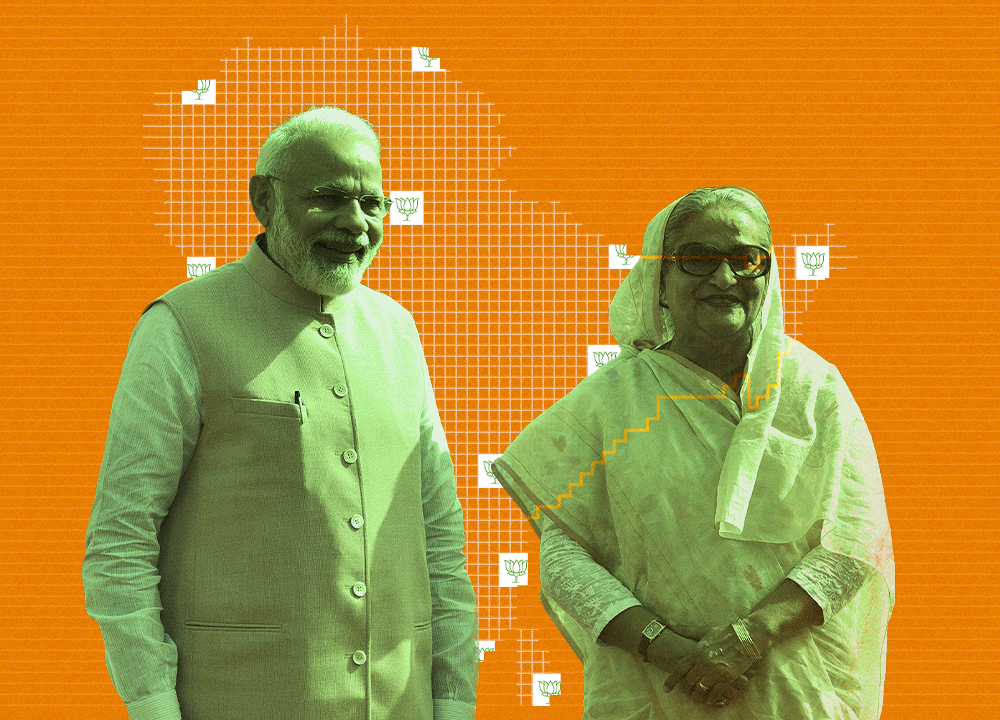
Hasina was at the front of the queue to extend her good wishes to the BJP even when its ability to form the next government was still an open question as the party had failed to win an outright majority.
Undeterred, Hasina followed up on her hurried congratulations with a trip to India to be present at Modi’s oath-taking ceremony and then another trip within a fortnight to become the first foreign head of government to pay a state visit to India post-election. The second visit on June 21st 2024 — which she described as “short but very fruitful” — lays bare the fact that Modi’s reelection may mean a victory for Hasina but surely a loss for Bangladesh’s interests.
The Awami League has historically had a good relationship with the Congress Party, now the main opposition. However, Hasina has deftly shifted away from this affiliation, culling and sidelining members of her party close to Congress, and moving towards the BJP, the Indian state and security apparati, in tandem with Modi’s rise.
Having previously sacrificed Bangladesh’s economic, energy, and environmental interests to benefit Modi’s crony Gautam Adani, Hasina’s reelection gift to Modi was the use of Bangladesh’s sovereign territory as a bypass for India’s rail network, connecting its landlocked northeastern region with the rest of the country.
No deal resulting from her visit offered any redress for Bangladesh. Let alone securing a fair share of water from transboundary rivers, Hasina failed to obtain even a modest promise from India to address the massive trade imbalance — India exports seven times more goods to Bangladesh than vice versa, creating a $12 billion deficit in India’s favour — by opening up its poorer neighbouring northeastern states to Bangladeshi businesses.
Nor was there a commitment for the shared development of impoverished regions along the border, where Indian border forces routinely gun down Bangladeshis with Hasina’s tacit approval.
If this were not already deeply troubling, let us remind ourselves that the BJP’s successful reelection campaign was, once again, based on unbridled hostility towards Bangladesh and Bangladeshis. The far-right Hindu nationalist party’s dehumanising rhetoric of “termites”, “illegal immigrants”, “infiltrators”, “special vote bank”, “seizure and redistribution of wealth and resources”, and “those who have more children” specifically targeted Bangladesh, insinuating at the false narrative of illegal Muslim migration from Bangladesh. The BJP has repeatedly failed to substantiate these blatant lies, yet Bangladesh’s navel-gazing ruling party has never registered any strong protests.
India is a regional hegemon, and it cannot be wished away. For Bangladesh, severing relations with it is fanciful and impossible. But that does not absolve Bangladeshi leaders from their responsibility to place its national interests ahead of those of India. Unfortunately for Bangladesh, Hasina’s self-serving subservience and the ideology of authoritarianism she shares with Modi render the Awami League incapable of doing that.●
Netra news









